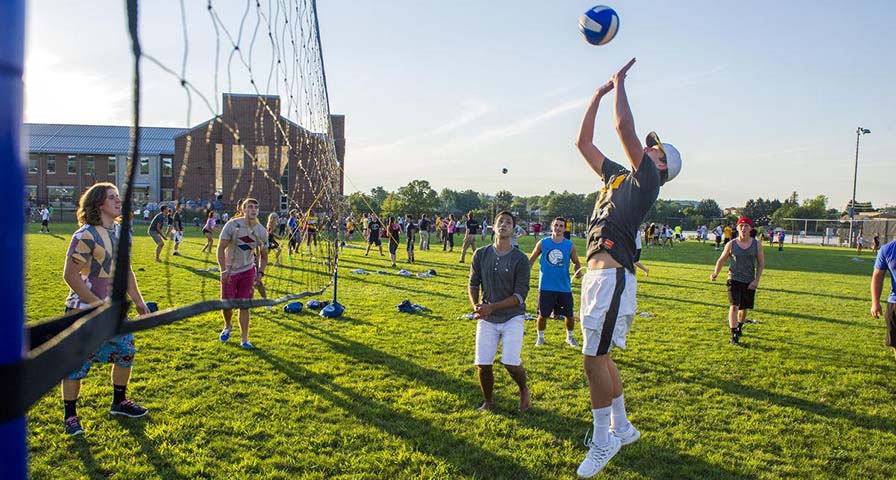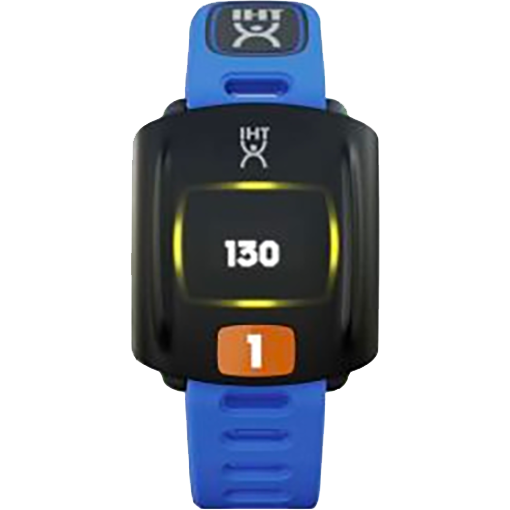Originally published May 6, 2019 in The Morgantown News.
By Conor Griffith
Researchers at West Virginia University, specifically the College of Physical Activity and Sport Sciences (CPASS), are exploring ways to improve physical education in the nation’s schools.
Physical education requirements for public schools returned with the Every Student Succeeds Act in 2015 after being sacrificed in favor of academic achievement under the older No Child Left Behind legislation. However, a challenge that still persists is a lack of consistent or even adequate phys-ed standards for schools.
 This is a challenge CPASS assistant professors Emi Tsuda and James Wyant seek to address via an evaluation of accountability systems relative to P.E. standards around the country. While their goal isn’t the creation of a “one-size-fits-all” system, the two do aim to establish benchmarks for continued national, state and local efforts targeting systemic improvement. And it isn’t just for the sake of it, but as a public health matter in the context of combatting childhood obesity.
This is a challenge CPASS assistant professors Emi Tsuda and James Wyant seek to address via an evaluation of accountability systems relative to P.E. standards around the country. While their goal isn’t the creation of a “one-size-fits-all” system, the two do aim to establish benchmarks for continued national, state and local efforts targeting systemic improvement. And it isn’t just for the sake of it, but as a public health matter in the context of combatting childhood obesity.
“Studies say physical education should start as early as pre-school,” Tsuda said. “Even at 3 years old, their skill level and their competence are already significantly different because their brain is almost developed.”
By exposing children and adolescents to better lifestyle management at a younger age, chronic illnesses such as diabetes and heart disease could be warded off.
“Our viewpoint is that we can make that difference and we’re trying to do our part, enriching their physical activity levels and their knowledge and skills,” Wyant said.
A problem Tsuda and Wyant identified is that not enough school systems collect data about how students are doing, nor do they evaluate teachers regarding physical education.
Tsuda said the importance of the study is to understand the current status of accountability systems in order to advocate for the needs of gathering necessary data that hold teachers accountable. She hypothesized that if the United States has an accountability system, people will start recognizing the importance of having those systems.
Tsuda and Wyant said students would be assured of a certified physical education teacher in the classroom, have motor skill development, personal fitness data and effective outcomes in sportsmanship available. Furthermore, they noted students would understand the value of physical activity and fitness, which is arguably the most difficult standard to address.
“If we teach them the importance of how they can be active outside of the school, they actually think about having this time and doing some physical activity,” Tsuda said. “When they get to high school and college, they have the knowledge and can place value on the importance of physical activity.”
Tsuda and Wyant were able to see some of the pieces to the puzzle during their research and start piecing them together such as which states are doing well, which states were aggregating some data and which states were lacking data entirely.
“We were able to synthesize all of that together and I think we were able to build (bridges) that (neighboring) states can use,” Wyant said. “Maybe this can move the conversation forward and get us closer to where we need to ultimately arrive, as it relates to accountability.”
Wyant said he believes the research — which as assisted by fellow CPASS faculty members Sean Bulger, Eloise Elliott and Andrea Taliaferro — will be visible within the field and will help move states toward providing high quality physical education to their students.
Seeking IHT Spirit System information?




